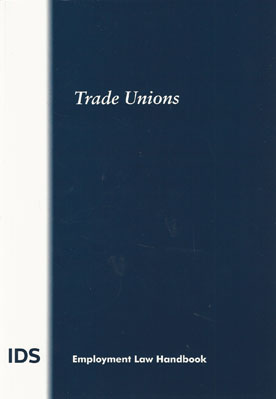
Although trade union membership has declined dramatically since its heyday in the 1970s, unions continue to represent millions of workers in the United Kingdom and to play a central role in employment relations.
The relationship between trade unions and their members and between trade unions and employers is now governed primarily by statute - in particular, the Trade Union and Labour Relations (Consolidation) Act 1992, although the common law continues to play a role, particularly in relation to union rules and collective agreements. And in recent years, Article 11 of the European Convention on Human Rights - the right to freedom of association - has had a growing influence on trade union rights in this country.
This Handbook aims to provide a clear and comprehensive account of the law relating to trade unions. The first half of the Handbook is concerned with collective matters. It begins by considering the definition and status of unions and looks at the question of trade union independence, the administrative obligations on unions and the law governing the amalgamation and dissolution of unions.
After examining the rules regulating trade union political funds, it considers the extent to which the relationship between unions and their members is governed by statute and the common law and explains the circumstances in which trade unions are obliged to hold elections for certain posts.
The Handbook then turns to the law governing trade union recognition - both voluntary and statutory- a concept that is central to the freedom of trade unions to represent their members in the workplace. In addition to collective bargaining rights, recognised unions enjoy certain privileges denied to unrecognised unions, such as the right to time off for trade union duties and activities and the right to be informed and consulted, both of which are discussed in detail.
The second half of this Handbook is concerned with the individual rights of trade union members (and non-members). It begins with a consideration of the right not to be refused employment on trade union grounds, before turning to the law governing detriment, unlawful inducements, and unfair dismissal for trade union reasons.
Finally, the Handbook explains the role of the Central Arbitration Committee and the Certification Officer, both of which continue to play an important part in the recognition and regulation of trade unions.